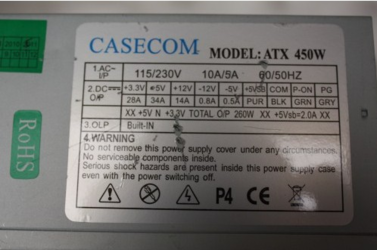Ha, ha!
Seriously, what we see happen so very often on this forum is that overclocking is an afterthought. The bug hits after people they have already purchased a system composed of low end components that are just fine at stock speeds and voltages. Then the dude finds out that you can overclock stuff and make it go faster. "I want to do that too," he says to himself! First thing he does is go out and buy a big honking CPU that was on sale, one that sucks so much juice the motherboard can barely handle it at stock speeds and voltages. And of course, he wants to get it to 4.3 ghz with the stock cooler because he read other guys got it going that fast. When he becomes frustrated with that, he turns to buying a big honking power sucking GPU 'cause somewhere he read that the CPU doesn't matter much anyway when you're gaming. But he has this no-name 400 watt PSU that came with the cheapo case that has no ventilator fans. And he may get desperate and start thinking magically that a better CPU cooler will fix everything so he buys a honking tall tower style air cooler that is taller than his case is wide so he saws the top of it off with a hacksaw which vacates all the coolant from the heat pipes. Then he finally throws up his hands in despair and says, I just don't understand why this overclocking gig isn't working for me!
My point is, a good overclocking experience starts with good planning and wise purchases from the ground up. IMO the first two purchases ought to be a spacious case with lots of fans and a solid PSU. The next purchase ought to be a great CPU cooler. Next should be a quality motherboard with good strong power phase components and good heat sinks on the chipset, and the mosfets. The last two things I would purchase are what most people go for first, the CPU and the GPU. With this approach a person won't be making the mistake of building a skyscraper on top of a chicken coup foundation.



